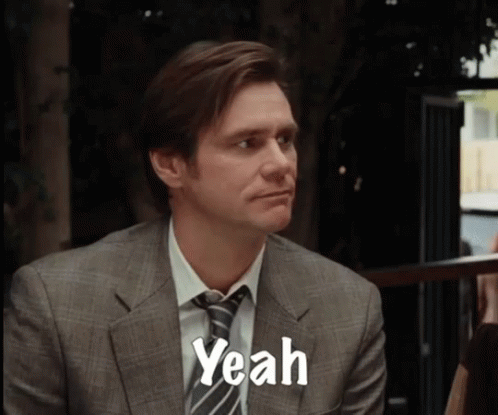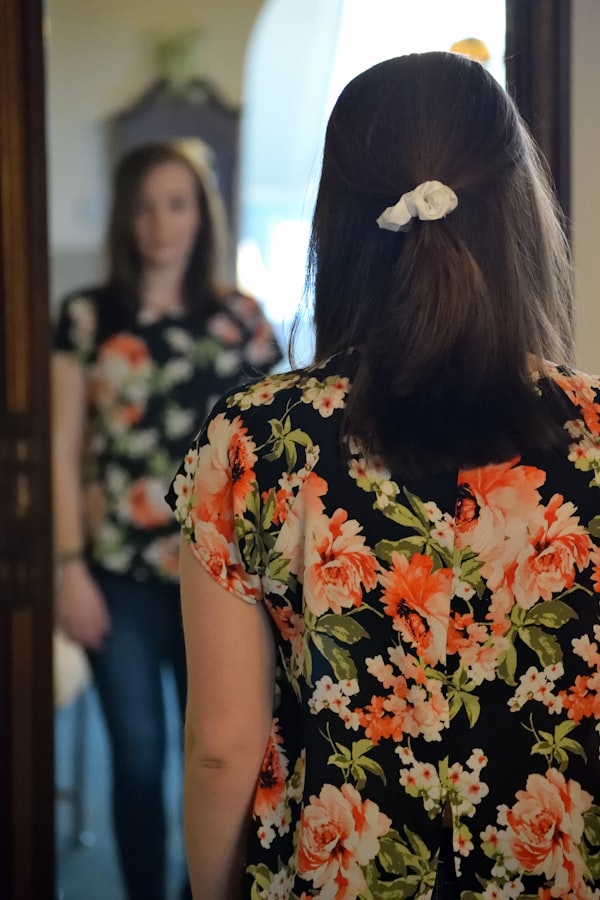Disclosure: Some of the links in this post might contain ‘affiliate links,’ which means if you click on a link and purchase an item, we will receive an affiliate commission at no extra cost to you.
"Nice guys" will NEVER live their life's purpose because they would rather get approval from the outer world and avoid conflict at all costs instead of doing what God needs them to do to fulfill their purpose.
A "nice guy" has been programmed to behave according to society's conditioning, causing them to be passive out of fear of confrontation.
Research by psychologist Dr. Robert Glover, author of "No More Mr. Nice Guy," suggests that ingrained patterns of seeking approval and avoiding conflict can hinder one's authentic self-expression and ability to live a purposeful life.
Additionally, studies on personality traits by psychologists like Dr. Jordan B. Peterson highlight how overly agreeable tendencies can lead to self-sacrifice and a lack of assertiveness, inhibiting the pursuit of one's true calling.
In today's podcast episode, "Why Nice Guys Will NEVER Live Their Life's Purpose," we talk about why "nice guys" will never live their purpose and how being fake nice will keep you stuck in many, if not all areas of your life.
Listen to the podcast episode "Why Nice Guys Will NEVER Live Their Life's Purpose" here 👇:
"Nice Guys" Will Always Struggle To Live Their Life's Purpose
"Nice guys" will always struggle to live their life's purpose because they have an internal psychological conflict known as the nice guy syndrome.
📌 Note: the "nice guy" syndrome doesn't pertain to just men, women who have also been conditioned and programmed to be nice also struggle with this internal psychological conflict, so the "nice guy" term applies to both men and women.
According to the Brothers In Arms website, "Nice Guy Syndrome is a behavior pattern where an individual seeks approval and validation by being extremely nice and accommodating to others, even at their own expense" ("Do You Have Nice Guy Syndrome?").
The behavioral pattern of being fake nice at one's expense is likely a shadow (a term coined by Carl Jung to describe the repressed aspects of oneself), stemming from a deep-seated psychological need for approval or fear of rejection.
For more information on what shadows are, check out this post 👇:

When one is subconsciously exhibiting extremely nice behavioral patterns, that is likely to hinder one from being who they truly are, which in turn is likely to hinder one from living their purpose because they will have an internal conflict between being who they are versus who they think they need to be to gain others' approval.
While being nice typically carries positive connotations, it's important to differentiate between genuine kindness and the facade of niceness that often accompanies the "nice guy" persona.
Societal and familial influences play a significant role in conditioning a child to behave a certain way and conform to traditional gender roles that may psychologically condition one to prioritize pleasing others over being true to themselves.
This conditioning then molds individuals into adopting the "nice guy" persona, hindering one's authentic self-expression and personal growth.
The "nice guy" syndrome, as explained in Robert Glover's book "No More Mr. Nice Guy," stems from a fear of rejection and a desire for external validation. This fear-based programming not only sabotages relationships but also prevents individuals from fully embracing their passions and pursuing their life's purpose with conviction.
According to Pace, "fear of rejection or conflict can lead to a reluctance to express one’s true desires and boundaries openly. Instead, individuals may resort to passive-aggressive behaviors, hoping others will intuit their needs without direct communication" (Pace, 2024).
"Nice guys" will always struggle to live their life purpose because they're not being authentically themselves (first and foremost). Their neediness for approval will cause them to go out of their way to help others, wasting precious time that could have been dedicated to their purpose.
Furthermore, the fear or rejection a "nice guy" might have might cripple them to express themselves because they would be seeking external validation from others.
Men, in particular, are expected to play a specific role in the modern world, which becomes increasingly confusing as societal conditioning and expectations might make men feel they need to adapt themselves, even if it means being incongruent with who they are.
The following song by Dax illustrates the motif of what men have come to believe it means to be a man and their value in the world 👇:
In a rapidly changing society, men who conform to meet the approval of the outer world will become inauthentic, and passive, and live a life they're unhappy with.
When "nice guys" suppress their truth, it will always keep them in conflict with themselves and their life's purpose.

Check out our "Getting Started" series to help you find, live, and unleash YOUR life purpose.
"Nice Guys" Do What They Think Others Want Them To Do
"Nice guys" do what they think others want them to do not because they want to be nice and genuinely do something for someone else: their underlying intention (consciously or unconsciously) might be to get something in return.
Galla states "nice guys find it hard to be honest even as they aim to meet other people’s needs. This is because they are always trying to hide who they really are to avoid conflict and ensure they are liked. Nice guys are most times passive-aggressive as a way of indirectly expressing their resentment, which ends up hurting the people they try to please" (Galla, 2023).
The "nice guy" goes out of their way to do something for you, pretending that they wants to do it when in actuality, they don't. "Nice guys" oftentimes do things someone wants them to do, then resent themselves for doing it.
Without a strong sense of self, a "nice guy" will continue to overextend themselves, do for others, and neglect themselves in the process. While doing for others is not necessarily "bad," it becomes problematic when a "nice guy" feels obligated to do things that they don't really want to do because it insinuates they can easily be controlled or manipulated.
If a "nice guy" can't establish boundaries, they can find themselves in relationships they don't want to be in, taking care of others they don't want to take care of, and even working professions their parents want them to work.
It would never be possible for a "nice guy" to live their purpose if they're wasting their energy catering to others who may be relying on the "nice guy" as a crutch because they intuitively believe they can manipulate the "nice guy" to do the things for them that they might be too lazy to do.
The energy that a "nice guy" radiates is not genuine niceness, but instead that of manipulation, passive aggressiveness, and people-pleasing, all of which are repellent energies.
A "nice guy" might also feel guilty if they do not do what they think others want them to do.
The consequence of a "nice guy" continuing to act out destructive behavioral patterns will ultimately stifle them from doing what they truly want to do. Instead of someone doing what's in their heart, regardless of others' opinions, a "nice guy" will opt for playing it safe, pleasing their parents, friends, or partner to be agreeable and avoid conflict.

“Be wary of a self-professed "nice guy". Anyone who is always going around saying they are "just trying to be nice" are most often, anything but nice. -If you're truly kind and loving, you don't have to "try". It comes naturally.”
― Miya Yamanouchi
"Nice Guys" Will Avoid Confrontation At All Costs, Even If It Means NOT Living Their Life's Purpose
"Nice guys" will avoid confrontation at all costs, even if it means not living their purpose because they need to be liked. This need to be liked is a form of "people pleasing," which Goodwin states is a form of lying and manipulation. According to Goodwin, people pleasers "lie not only to other people but to themselves. The people-pleaser may say that they are happy to take on a task but it really isn’t for the reason they claim. They are often wanting to get people to like them for what they do for others are rarely for themselves." (Goodwin, 2020).
Goodwin also states, "people pleasers will agree to anything just as long as they are able to get people to like them. Even at the cost of their credibility often lack integrity. These people find it hard to say no and will sacrifice themselves all for the sake of manipulating people.
The need to please others will leave a "nice guy" agreeable and make them uncomfortable expressing their opinions, leaving a "nice guy" to suppress themselves... at a cost.
Self-suppression is linked to anger and according to Begin, the nice guy suppresses their anger and avoids confrontation with people. Additionally, Begin states, "they’re people-pleasers because they’re afraid of tension, afraid of rejection, afraid of abandonment, and the like" (Begin, 2019).
Confrontation is highly uncomfortable and foreign to the "nice guy."
The "nice guy" finds it easier to be agreeable with others and do what the majority do instead of what they believe is right.
In a state of passivity, a "nice guy" will hold back from speaking their truth about a topic, giving their opinion, or doing whatever they believe they must do for their purpose.
When it comes to living your purpose, it's necessary to be honest with yourself and what your purpose is. You can't hold back from saying what you need to say or be afraid of confrontation.
Not everyone will like you or approve of what you're doing. You must let go of the "nice guy" persona and be yourself.
Carl Jung, a Swiss psychiatrist and psychoanalyst, introduced the concept of archetypes and the collective unconscious as fundamental aspects of his analytical psychology. Archetypes are universal, inherited symbols and images that are part of the collective unconscious, a deeper layer of the human psyche shared by all individuals regardless of culture or background.
Jung believed that the collective unconscious contains primordial images and motifs, which he called archetypes, that shape human experiences, behaviors, and beliefs. These archetypes emerge in dreams, myths, fairy tales, and religious symbols, reflecting common themes and patterns that resonate across cultures and periods.
Some of the most well-known archetypes include:
- The Shadow: Representing the darker, repressed aspects of the self, the Shadow encompasses the parts of our personality that we deny or suppress.
- The Persona: This archetype refers to the social mask or facade that individuals present to the world, often concealing their true selves.
- The Anima/Animus: The Anima represents the feminine aspects within the male psyche, while the Animus represents the masculine aspects within the female psyche. They symbolize the unconscious contrasexual elements.
- The Self: The Self represents the totality of the psyche, integrating both the conscious and unconscious aspects of the individual. It symbolizes wholeness and individuation.
These archetypes influence human behavior, relationships, and spiritual development. Jung believed that recognizing and integrating these archetypal energies into consciousness is essential for personal growth and individuation, the process of becoming one's true self.
A "nice guy" will never become their true self if they are acting on an artificial behavioral pattern to please others. The "nice guy" persona would fundamentally be a shadow that originated in fear of rejection, leaving the "nice guy" to hide who they truly are in exchange for being something they're not, thus gaining the conditional approval of others in the process.
If the "nice guy" fears rejection, they will not feel safe expressing themselves and their purpose in life because their "nice guy" persona keeps them afraid of being abandoned by their loved ones or the outer world.

“Never push a nice guy. Nice guys turn into the scariest sons of bitches when you push them too far.”
― Garon Whited
"Nice Guys" Will Always Pretend When It's Time To Do Uncomfortable Things To Fulfill Their Life's Purpose
"Nice guys" will always pretend when it's time to do uncomfortable things to fulfill their purpose.
The "nice guy" persona, what is being presented to the outer world, is in direct conflict when the "nice guy" may need to do things that are out of character for the "nice guy."
Fearing confrontation, disagreement, or abandonment, will leave a "nice guy" to continue pretending all is right with the world when it isn't.
Psychologists suggest that the inclination to avoid discomfort stems from a fear of rejection or negative judgment. Dr. Aziz Gazipura, a clinical psychologist and author, explains that "nice guys" often prioritize maintaining a positive image and seeking approval over confronting difficult situations. This tendency can lead to a pattern of avoidance and people-pleasing behavior, hindering their ability to pursue their true aspirations.
The "nice guys" need to be agreeable will keep them a passive "YES MAN," thus making them believe others are right, they're wrong, and they must keep quiet to avoid pissing other people off.
The irony of the "nice guy" is when the "nice guy" stops being a "nice guy" and instead accepts their shadows and who they are, they will naturally attract others into their lives who accept them for being themselves.

"Nice Guys" Will NEVER Live Their Life's Purpose
The "nice guy" must confront their shadows and address the root cause of their persona to be authentic and live their purpose.
A "nice guy" must accept themselves for who they are, regardless of others' approval. The "nice guy" will never live their purpose until they accept themselves and their truth.
Once the "Nice guy" persona has been shed, they can consciously create a new identity, in alignment with their truth and purpose in life.
However, the "nice guy" will forever be doomed to living beneath their potential, playing it safe, and wanting to be liked over doing what must be done to fulfill their purpose if they continue being incongruent with who they are.

Download the lifepurpose.com blueprint
Go on a free 7-day journey to help you find, live, and unleash YOUR Life Purpose.
Begin, Brian. “The Accumulated Rage of the Nice Guy | Inside FEARLESS.” Thefearlessman, 23 May 2019, https://www.thefearlessman.com/the-accumulated-rage-of-the-nice-guy-inside-fearless/.
Gazipura, Aziz. "The Art of Extraordinary Confidence: Your Ultimate Path to Love, Wealth, and Freedom." Sterling Ethos, 2016.
Galla, Sean. “A No More Mr. Nice Guy Support Group: Top 3 NMMNG Support Groups.” MensGroup.Com, 2 Sept. 2023, https://mensgroup.com/no-more-mr-nice-guy-support-group/.
Glover, Robert A. No More Mr. Nice Guy: A Proven Plan for Getting What You Want in Love, Sex, and Life. Running Press, 2003.
Goodwin, Bryan. “Truth About Nice Guys.” Relaxed Male Coaching - Change How You Relate to Those around You., 24 June 2020, https://www.relaxedmale.com/truth-about-nice-guys/.
Jung, Carl G. The Archetypes and The Collective Unconscious. Collected Works of C.G. Jung, vol. 9, part 1, Princeton University Press, 1 Aug. 1981.
Pace, Rachael. “17 Telling Signs of the Nice Guy Syndrome & Ways to Handle It.” Marriage Advice - Expert Marriage Tips & Advice, Marriage.com, 28 Feb. 2024, https://www.marriage.com/advice/relationship/nice-guy-syndrome/.
Peterson, Jordan B. 12 Rules for Life: An Antidote to Chaos. Penguin Random House Canada, 2018.
“Do You Have Nice Guy Syndrome? (And Do You Know What It Is?).” Brothers In Arms, Brothers In Arms, 17 Mar. 2023, https://brothersinarmsscotland.co.uk/information/news/2023/march/17/what-is-nice-guy-syndrome/.

Support The Blog With Bitcoin
If this post was valuable to you, consider a one-time contribution.
BTC wallet address: 36jDqZdc3gwE7Uou8BwZiYSNEjFUozKvDi










